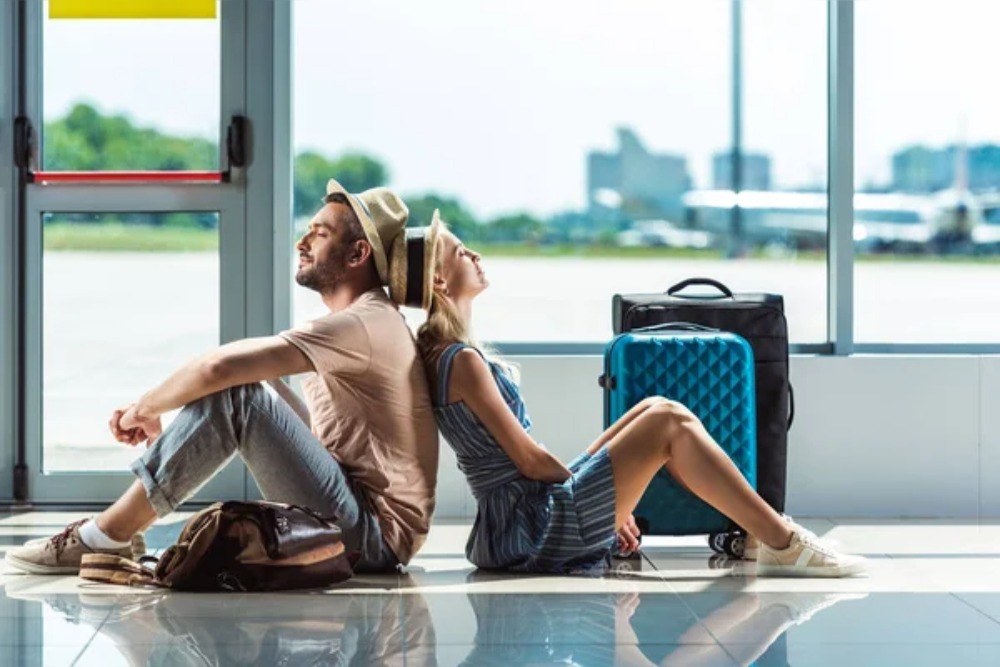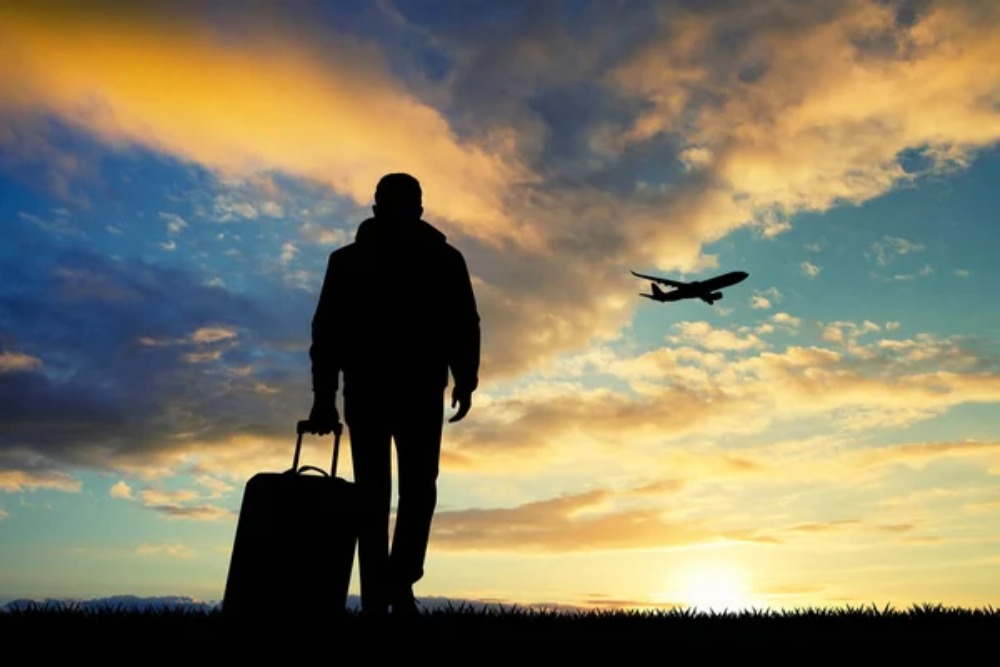Your first major trip abroad? It’s exciting yet overwhelming. Between booking flights and researching destinations, there’s plenty to think about. Yet despite all that preparation, nearly everyone stumbles into a few classic rookie mistakes. Whether it’s hauling around too much luggage or getting caught off-guard by visa requirements, these missteps are practically a rite of passage for new travelers.
Fortunately, most travel blunders are entirely avoidable once you know what to look for. Here is a list of 18 common mistakes that trip up first-time travelers, plus practical ways to dodge them completely.
Overpacking Your Suitcase

That third pair of shoes seems essential when you’re packing at home. So does the extra jacket, those ‘just in case’ outfits, and half your bathroom cabinet. Reality hits hard — especially when you’re hauling 50 pounds of stuff up narrow European staircases.
Experienced travelers swear by a simple trick: lay everything out, then remove half. You’ll still have more than enough, trust me.
Forgetting Travel Insurance

Travel insurance sounds like an unnecessary expense until disaster strikes. Maybe your appendix decides to act up in Bangkok. Perhaps that connecting flight gets canceled — leaving you stranded overnight. These situations transform a minor expense into major savings.
Basic coverage typically runs less than a fancy meal back home, yet it provides invaluable peace of mind throughout your journey.
Like Travel Pug’s content? Follow us on MSN.
Not Checking Passport Expiration

Here’s something that catches people constantly: many destinations require six months of passport validity beyond your return date. Doesn’t matter if your passport’s still technically valid. Airlines will literally deny boarding if you’re cutting it close — and they check.
Renewing takes time, though rush services exist if you’re desperate. Just expect to pay through the nose for that convenience.
Exchanging All Money at Airport Kiosks

Those airport exchange counters? Highway robbery with a smile. They know you need local currency immediately — and they price accordingly. ATMs at your destination offer much better rates, while many banks let you order foreign currency before departure.
Several credit cards now waive foreign transaction fees entirely. Do your wallet a favor and plan ahead.
Booking Flights Without Checking Visa Requirements

Few things feel worse than reaching immigration only to discover you needed advance visa approval. Requirements vary: some countries want applications weeks ahead, others sell visas at the border, while certain nationalities enter free. These rules shift frequently too — yesterday’s policy might not apply today.
Always verify current requirements through official government sources, not travel blogs or forums.
Like Travel Pug’s content? Follow us on MSN.
Sticking Only to Tourist Areas

Tourist zones feel safe and familiar. English menus everywhere, helpful signs, plenty of other visitors around. Yet this comfort comes at a price — literally. Venture just a few streets over and prices drop while authenticity soars. Local neighborhoods reveal how people actually live, where they shop, and what they eat for lunch.
Sure, you might need to point at menu items instead of reading them. That’s part of the adventure, though.
Not Informing Your Bank About Travel

Picture the scene: romantic dinner in Paris, the check arrives, and your card gets declined. Not because you’re broke — your bank’s fraud department spotted ‘suspicious’ international charges. One phone call beforehand prevents this embarrassment.
Most financial institutions now offer mobile apps where you can set travel notices instantly. Takes thirty seconds, saves massive headaches.
Trying to See Everything

Rome wasn’t built in a day — and you can’t see it in one either. First-timers often craft itineraries that would exhaust professional athletes. Museum at nine, monument at ten-thirty, lunch somewhere photogenic, then three more attractions before dinner. Slow down.
That leisurely afternoon in a piazza might become your favorite memory, while racing between sights leaves you exhausted and overwhelmed.
Like Travel Pug’s content? Follow us on MSN.
Ignoring Jet Lag

Jet lag doesn’t care about your plans. Cross enough time zones and your body rebels — hard. Some folks think sheer determination conquers circadian rhythms. Many end up nodding off at dinner despite their best intentions. Start adjusting your sleep schedule before departure.
Stay hydrated on the flight, and seek sunlight upon arrival. Your body’s internal clock needs gentle coaxing, not brute force.
Not Having Offline Maps

Phone data abroad costs a fortune, if it works at all. Rural areas, subway systems, thick-walled buildings — all notorious dead zones. Yet people still rely entirely on live navigation. Download offline maps while you’ve got WiFi each morning. Google Maps and Maps.me both work brilliantly without any connection.
Transform your phone into a proper navigation tool rather than an expensive paperweight.
Eating Only at Restaurants Near Hotels

Hotel restaurants and their immediate neighbors often serve the most forgettable meals at the highest prices. Why? Convenience trumps quality when you’ve got guaranteed foot traffic. Walk ten or fifteen minutes in any direction though, and the landscape changes.
Busy lunch spots packed with locals, street vendors with lines of regulars, family-run places where grandma still makes the sauce. These spots rarely disappoint.
Like Travel Pug’s content? Follow us on MSN.
Converting Prices Incorrectly

Foreign currencies make mental math challenging, especially when you’re tired or distracted. That ‘bargain’ leather jacket might cost triple what you assumed. Some currencies particularly confuse newcomers. Japanese yen, Indonesian rupiah, Hungarian forint — all feature numbers that seem astronomical until you do the conversion.
Download a currency app, sure, but memorize rough equivalents for faster decision-making while shopping.
Booking Accommodations Without Reading Reviews

Professional photography works miracles. That ‘charming boutique hotel’ might sit above a nightclub. The ‘convenient location’ could mean next to the train station — the freight train station. Recent reviews tell the real story about noise, cleanliness, neighborhood safety, and whether breakfast consists of stale croissants or something actually edible.
Focus on reviews from the past few months since management and standards change.
Not Keeping Digital Copies

Documents go missing. Pickpockets exist, bags get forgotten, and important papers fall out of pockets. When your passport vanishes, digital copies become lifesavers. Scan everything important before leaving: passport, licenses, insurance cards, confirmations, even vaccination records. Email these files to yourself and save them in cloud storage.
Multiple backups mean one lost document won’t derail your entire trip.
Like Travel Pug’s content? Follow us on MSN.
Underestimating Walking Distances

Maps lie through omission. That museum looks close to your accommodation — maybe half an inch on screen. Reality? A forty-minute trek through busy streets, possibly uphill, definitely in weather you didn’t anticipate. European cities especially deceive with their compact-looking historic centers that actually sprawl for miles.
Quality walking shoes prevent blisters, while knowing local transport options prevents exhaustion.
Following Rigid Itineraries

Structure helps, but too much structure strangles spontaneity. Maybe locals invite you to a family celebration. Perhaps you discover an amazing market that’s only open on Thursdays. Rigid schedules force you to decline these opportunities. Build buffer time into each day.
Allow for wandering, for getting temporarily lost, for lingering over exceptional meals. The best stories rarely come from perfectly executed plans.
Not Learning Basic Local Phrases

Speaking English everywhere works, technically. But attempting the local language, however poorly, changes interactions completely. Master five phrases minimum: hello, goodbye, please, thank you, and excuse me.
Pronunciation doesn’t need perfection. Locals appreciate effort over accuracy. These simple attempts often unlock warmer service, insider recommendations, and genuine connections you’d miss otherwise.
Like Travel Pug’s content? Follow us on MSN.
Forgetting About Time Zone Differences

Time zones create confusion beyond jet lag. International flights, tour bookings, restaurant reservations — all vulnerable to miscalculation. Missing experiences because you showed up twelve hours late feels terrible.
Keep multiple clocks visible: home time for coordinating with family, local time for actual activities. Double-check everything involving specific times. When booking online, verify which time zones the system uses.
Growing Into a Seasoned Traveler

Mistakes teach powerful lessons, though learning from others’ experiences saves time and frustration. Every expert traveler began as a nervous newcomer who probably committed most of these errors. The difference between stressful chaos and incredible adventures often comes down to preparation mixed with flexibility.
Your first big journey should create stories worth telling, not cautionary tales about what went wrong. Pack smart, plan loosely, and prepare for the unexpected — because that’s where the magic happens anyway.
More from Travel Pug

- 20 Best Beach Towns in the Carolinas
- 13 Destinations Where Tourists Regularly Regret Their Trip
- 20 Things You Actually Get in First Class
- 20 Small Airports With Aviation Museums
- 20 Places in the U.S. That Are Perfect for a Reset Trip
Like Travel Pug’s content? Follow us on MSN.
